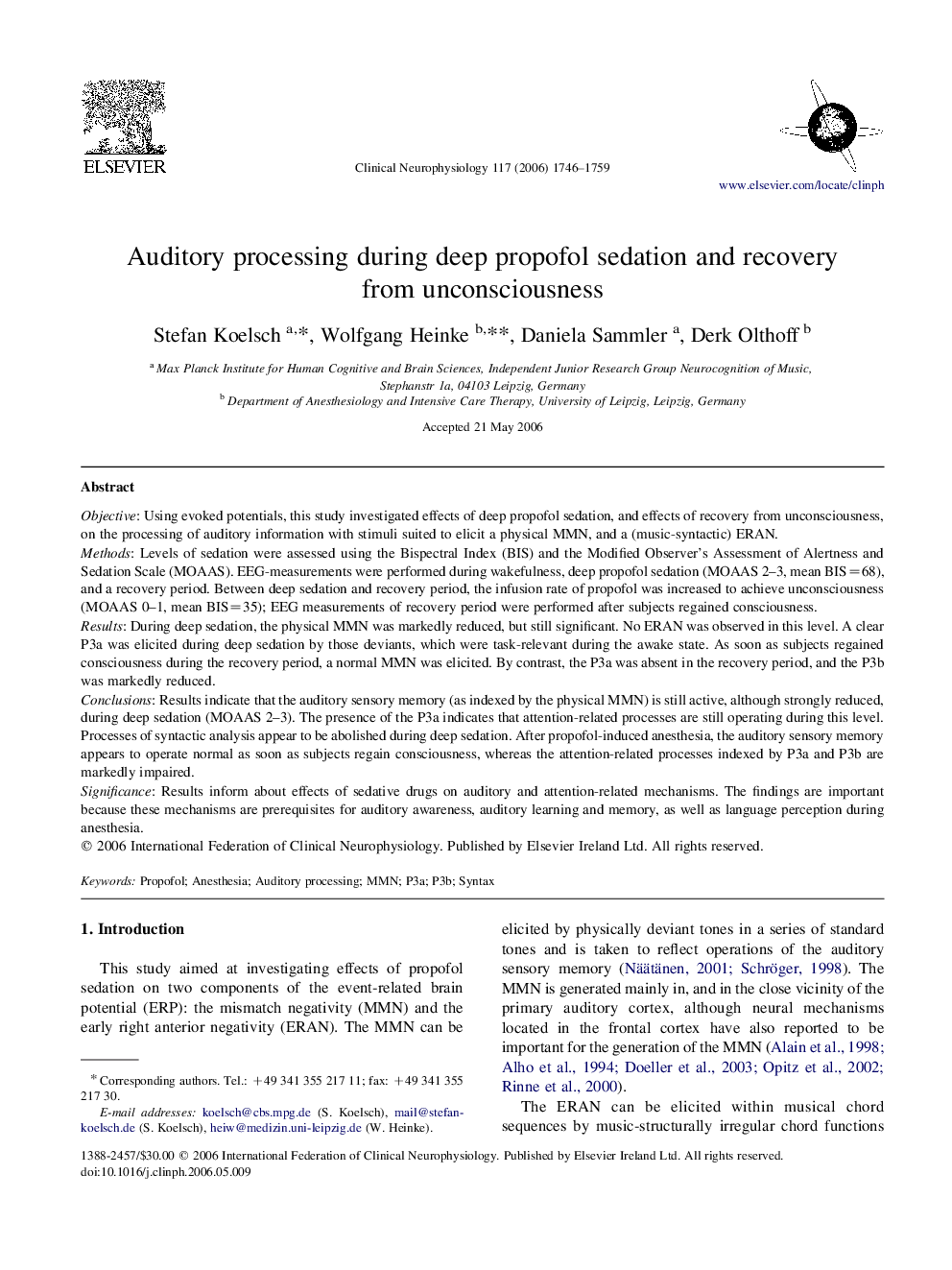| Article ID | Journal | Published Year | Pages | File Type |
|---|---|---|---|---|
| 3048667 | Clinical Neurophysiology | 2006 | 14 Pages |
ObjectiveUsing evoked potentials, this study investigated effects of deep propofol sedation, and effects of recovery from unconsciousness, on the processing of auditory information with stimuli suited to elicit a physical MMN, and a (music-syntactic) ERAN.MethodsLevels of sedation were assessed using the Bispectral Index (BIS) and the Modified Observer's Assessment of Alertness and Sedation Scale (MOAAS). EEG-measurements were performed during wakefulness, deep propofol sedation (MOAAS 2–3, mean BIS=68), and a recovery period. Between deep sedation and recovery period, the infusion rate of propofol was increased to achieve unconsciousness (MOAAS 0–1, mean BIS=35); EEG measurements of recovery period were performed after subjects regained consciousness.ResultsDuring deep sedation, the physical MMN was markedly reduced, but still significant. No ERAN was observed in this level. A clear P3a was elicited during deep sedation by those deviants, which were task-relevant during the awake state. As soon as subjects regained consciousness during the recovery period, a normal MMN was elicited. By contrast, the P3a was absent in the recovery period, and the P3b was markedly reduced.ConclusionsResults indicate that the auditory sensory memory (as indexed by the physical MMN) is still active, although strongly reduced, during deep sedation (MOAAS 2–3). The presence of the P3a indicates that attention-related processes are still operating during this level. Processes of syntactic analysis appear to be abolished during deep sedation. After propofol-induced anesthesia, the auditory sensory memory appears to operate normal as soon as subjects regain consciousness, whereas the attention-related processes indexed by P3a and P3b are markedly impaired.SignificanceResults inform about effects of sedative drugs on auditory and attention-related mechanisms. The findings are important because these mechanisms are prerequisites for auditory awareness, auditory learning and memory, as well as language perception during anesthesia.
